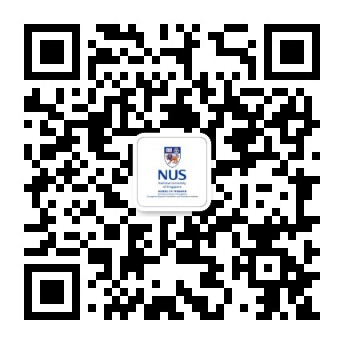[This article references content from the “Guangzhou Foreign Affairs Office” WeChat official account and CNA (Channel News Asia), with video reposted from Guangzhou Broadcasting Network]
On September 1, Singapore Deputy Prime Minister and Minister for Trade and Industry Gan Kim Yong led a delegation to China, with Guangzhou as their first stop. The delegation specifically visited the China-Singapore Guangzhou Knowledge City for an exchange and a tour.
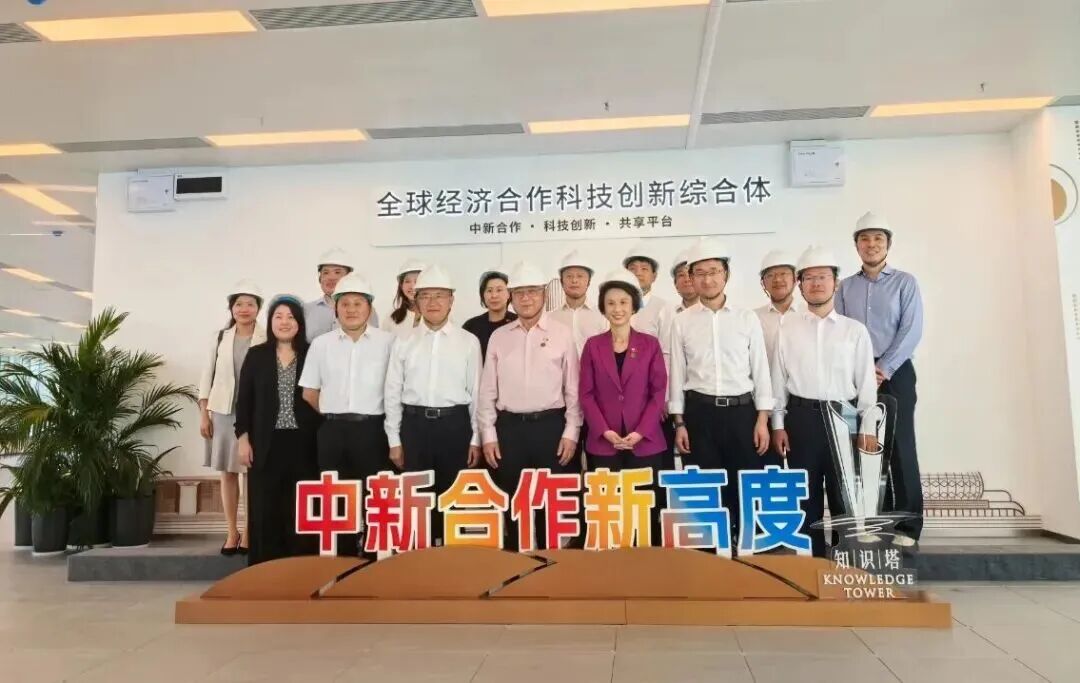
The delegation first visited the Knowledge Tower located by the Jiulong Lake. As a landmark project of China-Singapore cooperation, the Knowledge Tower stands 303 meters tall with a total floor area of 400,000 square meters. It was constructed in accordance with the Zhan Tianyou Award, Green Building Three-Star Certification, and LEED Platinum standards. The tower comprises Grade-A office spaces, a five-star branded hotel, and supporting commercial facilities, serving as the core landmark of the Knowledge City CBD—the Jiulong Lake Headquarters Economic Belt. The project was topped out in 2023 and is currently undergoing intensive interior finishing. It is expected to be officially operational by 2026.
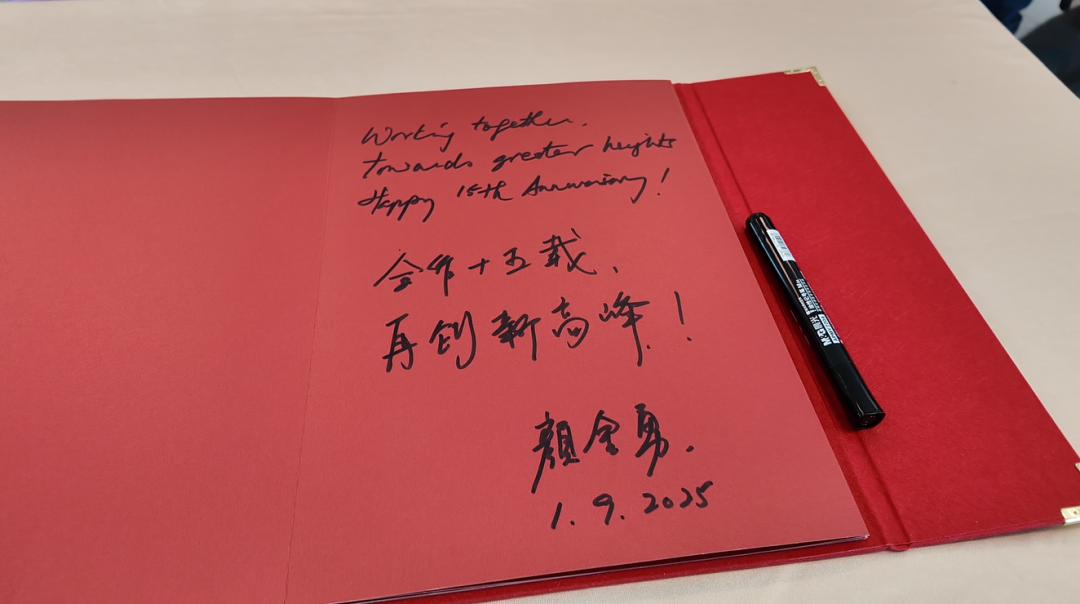
At the top of the Knowledge Tower, the delegation overlooked the panoramic view of the Knowledge City and gained a detailed understanding of its planning, construction, and the achievements of China-Singapore cooperation through a photo exhibition. In 2023, then-Minister for Trade and Industry Gan Kim Yong visited the Knowledge City alongside former Prime Minister Lee Hsien Loong. Two years later, the Knowledge City has undergone further transformation, with cooperative projects steadily advancing. During the tour, Gan Kim Yong frequently nodded and asked questions, demonstrating keen interest in the development of the Knowledge City. He left a message in the guestbook: “Fifteen Years of Collaboration, Scaling New Heights!” affirming the significance of the Knowledge City as a national-level bilateral project between the two countries.
Subsequently, the delegation visited the National University of Singapore (Guangzhou) Research Translation and Innovation Institute (hereinafter referred to as “NUS GRTII”). NUS GRTII is a collaborative effort between the Guangzhou Municipal Government, the China-Singapore Guangzhou Knowledge City Administrative Committee, and the National University of Singapore (NUS). It serves as NUS’s flagship project in the Guangdong-Hong Kong-Macao Greater Bay Area, dedicated to promoting research translation, innovation incubation, and talent development, thereby building an integrated innovation ecosystem encompassing research, entrepreneurship, and talent.
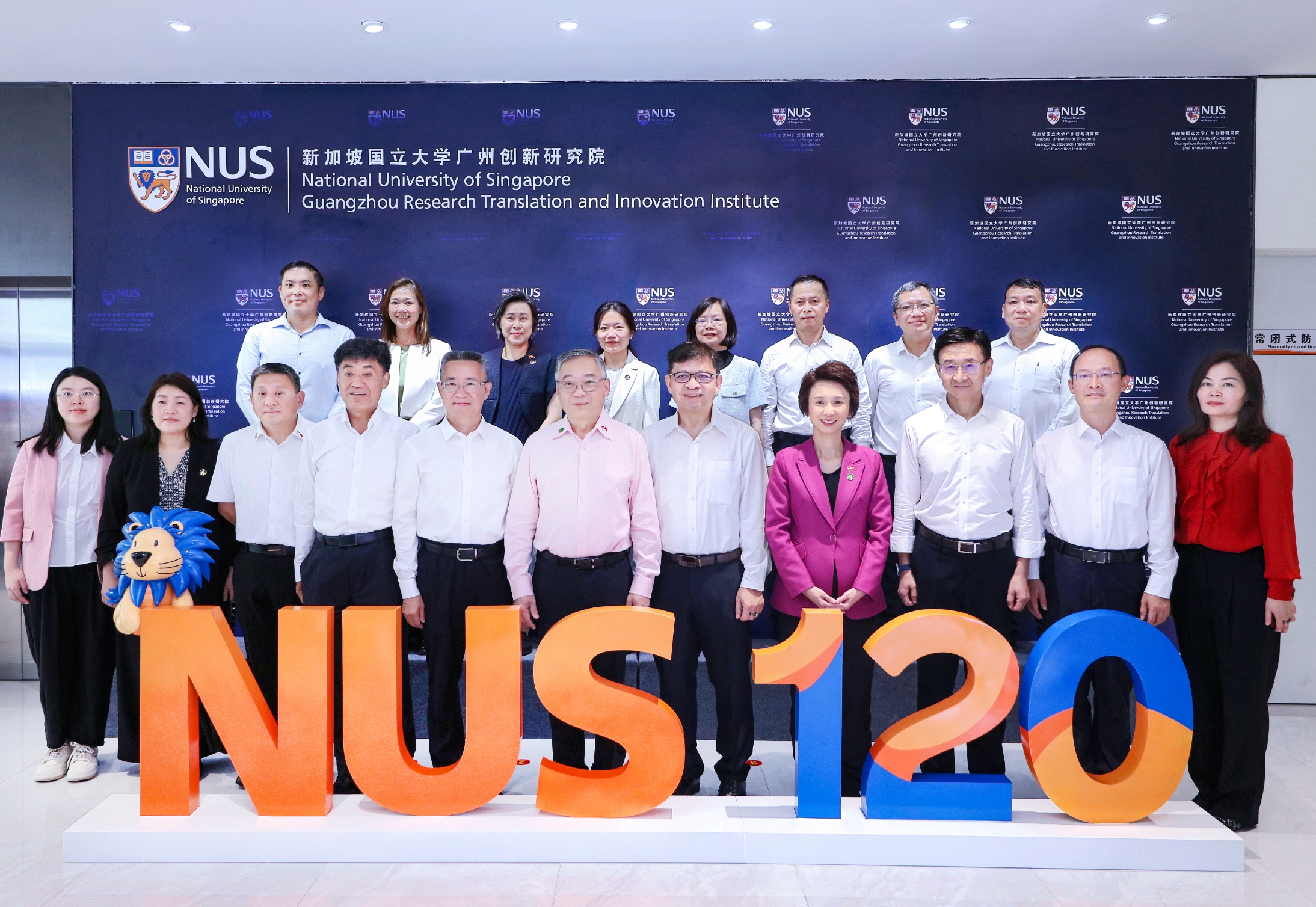
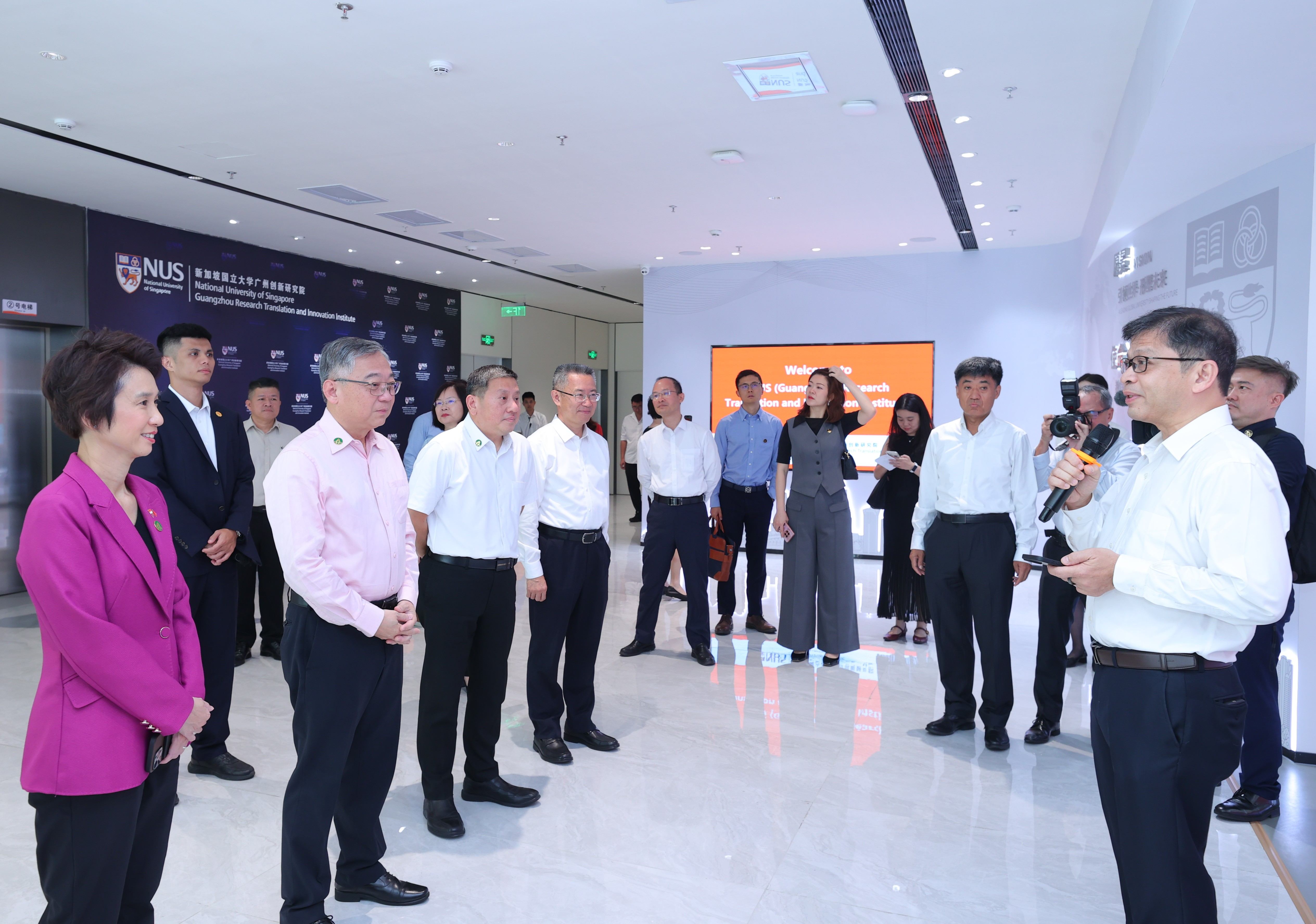
Mr. George Loh, Associate Vice President (Strategic Partnerships) of NUS, delivered a welcome address. He emphasized: “We are committed to bridging NUS’s cutting-edge research resources with actual industry needs, vigorously driving the efficient translation and industrial application of scientific and technological achievements.” Mr. Loh further expressed that “with the guidance and support of leaders at all levels, NUS GRTII looks forward to working hand-in-hand with various partners to continuously inject innovation momentum into the high-quality development of the Guangdong-Hong Kong-Macao Greater Bay Area and Guangzhou’s Huangpu District, contributing to the deepening of friendly relations and strategic cooperation between China and Singapore.”
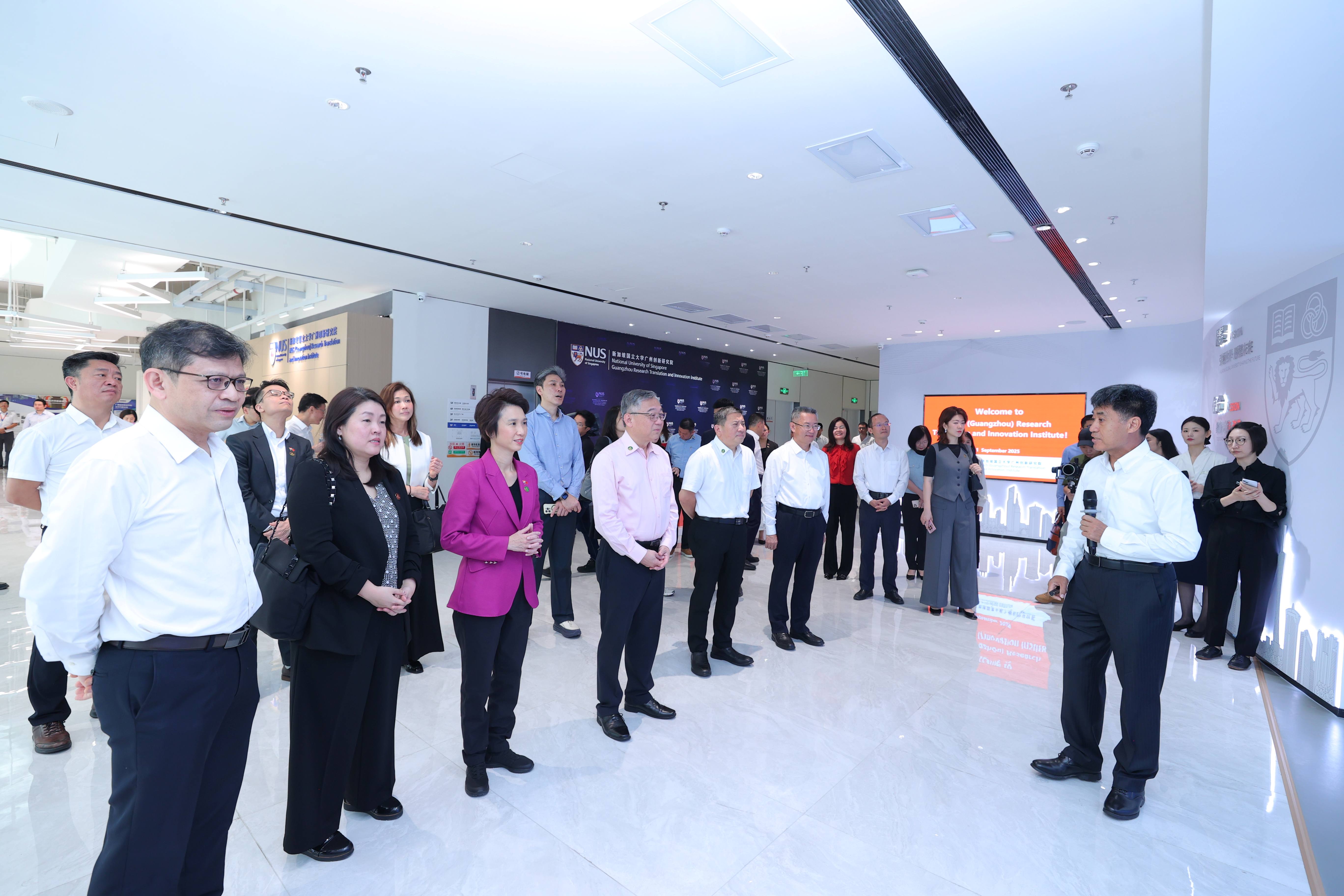
Professor Shuzhi Sam Ge, director of NUS GRTII, introduced NUS GRTII’s development journey, research focus, and future plans from three dimensions: research translation, innovation and entrepreneurship, and talent development. Professor Ge then accompanied the delegation on a tour of NUS GRTII’s exhibition hall, where he highlighted projects on the application of artificial intelligence in reproductive field and the ongoing construction of the Intelligent Systems Laboratory, sparking keen interest and lively discussion among the delegates.
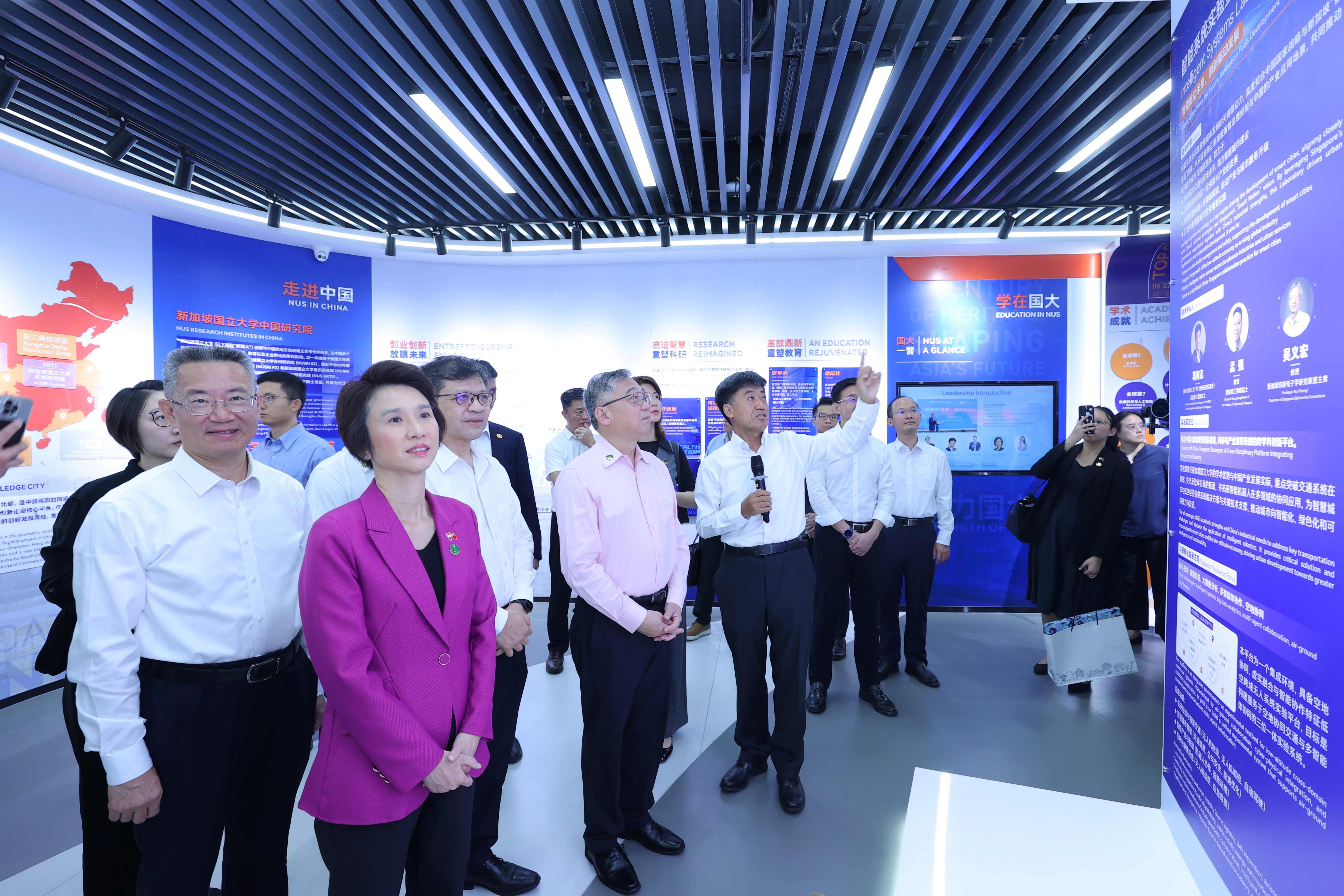
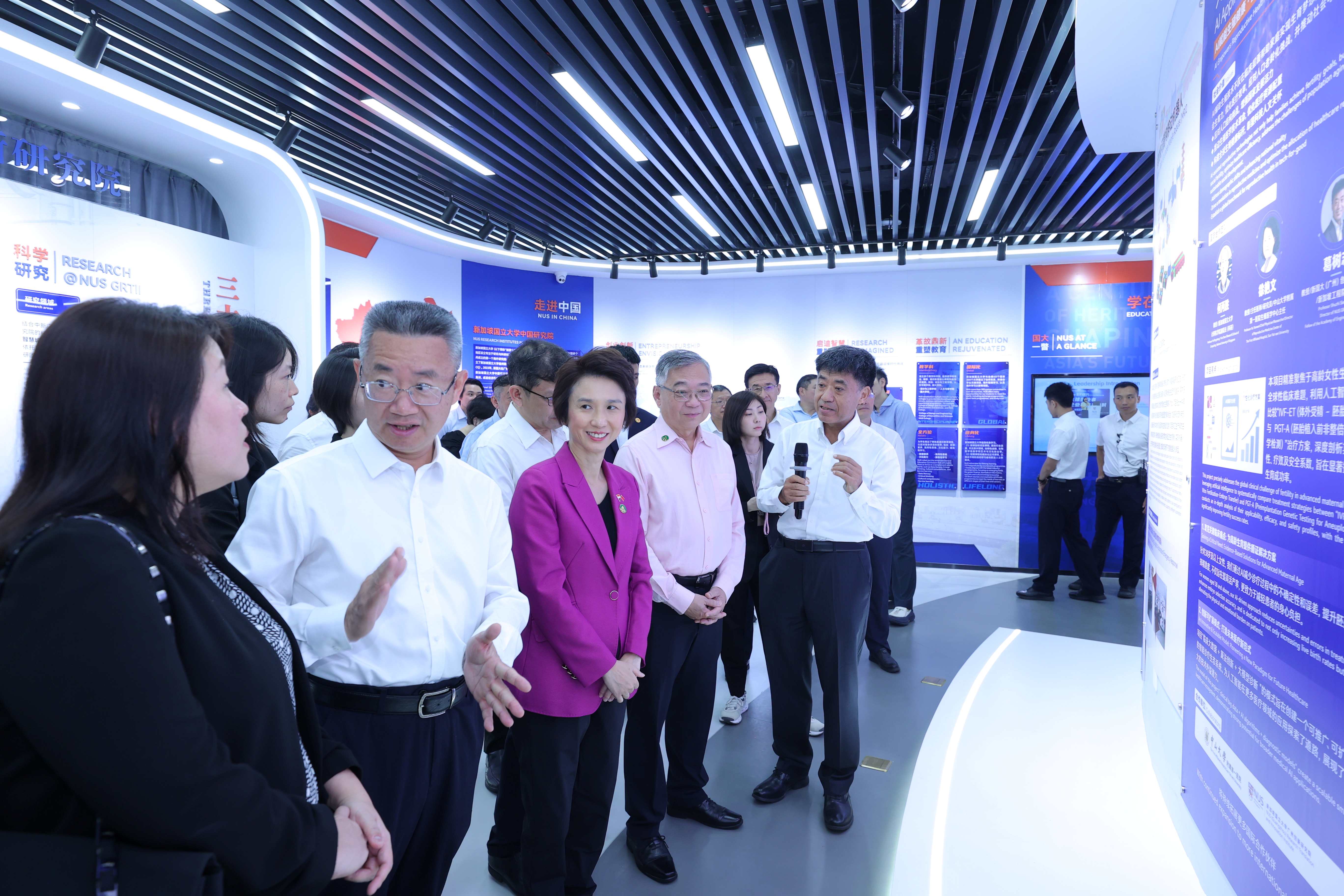
Application of Artificial Intelligence in Reproductive Field
Addressing the common challenge of declining birth rates in both China and Singapore, NUS and the First Affiliated Hospital of Sun Yat-sen University have jointly formed an international research team. Leveraging artificial intelligence technology, the project aims to enhance the success rate of childbirth among women of advanced maternal age. Driven by the dual cores of “clinical big data + algorithmic innovation,” the project is building an AI-assisted diagnosis and treatment ecosystem. This initiative not only demonstrates the warmth of technology serving humanity but also provides a replicable and scalable model of collaboration between China and Singapore in the field of medical technology. It contributes to optimizing regional healthcare resource allocation and promoting the sustainable development of health initiatives.
Intelligent Systems Laboratory
As a key interdisciplinary platform for China-Singapore strategic collaboration, the Intelligent Systems Laboratory focuses on core technologies such as intelligent systems and air-ground coordination. It is dedicated to building experimental platforms for port optimization, unmanned road transportation, and low-altitude cross-domain unmanned systems. This platform not only provides technical support for the globally burgeoning intelligent economy industry but also finds extensive applications in smart transportation, urban management, emergency response, and other fields. It serves as a “practical benchmark” in China-Singapore smart city cooperation, actively empowering urban intelligentization and sustainable development transformation.
NUS GRTII extends its sincere gratitude to Singapore Deputy Prime Minister and Minister for Trade and Industry Gan Kim Yong and the delegation for their visit and blessings, as well as their attention and guidance on NUS GRTII’s work. NUS GRTII looks forward to further deepening cooperation with various partners in the future, jointly advancing scientific and technological innovation and talent development between China and Singapore to new heights.
After concluding the visit to the China-Singapore Guangzhou Knowledge City, Deputy Prime Minister Gan Kim Yong held talks with Guangdong Governor Wang Weizhong. Both leaders agreed that the China-Singapore Guangzhou Knowledge City will continue to serve as a beneficial testbed for new technological developments. Governor Wang Weizhong proposed that Guangdong and Singapore further strengthen cooperation in “new quality productive forces” such as artificial intelligence and robotics. This aligns precisely with the key development areas and directions of NUS GRTII. Leveraging the industrial needs of the China-Singapore Guangzhou Knowledge City and the Guangdong-Hong Kong-Macao Greater Bay Area, NUS GRTII primarily focuses on seven major fields, including AI applications, smart cities, information and communication, and biological sciences, taking the lead in research on AI applications, intelligent transportation, low-altitude technology, and healthcare. It promotes the transition of new technologies from the laboratory to the market, building a tightly integrated innovation ecosystem of industry, academia, research, and application.
Guangdong has been Singapore’s largest provincial trading partner in China for 36 consecutive years. Building on this solid foundation, NUS GRTII will continue to keep pace with the development of both Singapore and Guangdong. Relying on the China-Singapore Guangzhou Knowledge City as an international knowledge innovation platform, it will deeply integrate NUS’s top-tier research capabilities with the robust industrial resources of the Guangdong-Hong Kong-Macao Greater Bay Area. By establishing an efficient translation mechanism from “laboratory to international market,” it will facilitate the application of global cutting-edge technologies and promote two-way flow in China-Singapore technological exchange.


